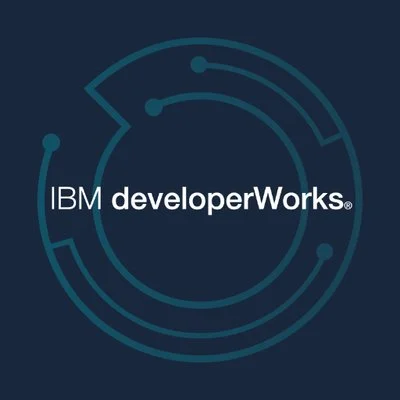Kodi vs. Plex: Which Media Center Solution is Right for You?
In the world of media streaming, Kodi and Plex have emerged as two of the most prominent solutions available. While both platforms offer robust features for organizing and accessing your media library, they serve different purposes and cater to different needs. In this article, we will dive into the details of each platform, compare their features, and help you make an informed decision on the best solution for your media consumption needs.
Understanding Plex: The Media Server Solution
What is Plex?
Plex is a media server solution that is designed primarily to run from a single host machine within your local network. The server stores media and streams it to various client devices such as smartphones, smart TVs, and tablets through dedicated applications, web interfaces, or DLNA-compliant devices.
Key Features of Plex:
-
Versatile Device Compatibility:
Plex Media Server can be installed on a range of devices, including Windows, macOS, Linux, FreeBSD, and network-attached storage (NAS) systems. This means you can easily set up a dedicated server on a device you already own. -
User-Friendly Client Applications:
Plex provides a comprehensive suite of client apps, enabling access to your media library on major desktop operating systems, smart TVs, set-top boxes like Apple TV and NVIDIA Shield, and mobile devices (both Android and iPhone). A web interface via standard browsers also allows accessibility without dedicated apps. -
Remote Access:
One of Plex’s standout features is its ability to stream media remotely. By logging into your Plex account, you can access your media library from anywhere in the world. This is an excellent feature for users who travel frequently. -
Robust Media Organization:
Plex excels at organizing your media library. It can scan your collection of movies, TV shows, music, and photos, automatically fetching cover images, descriptions, and ratings, providing a seamless browsing experience. - Plex Pass:
While Plex is free, it does offer a subscription service known as Plex Pass. This premium option unlocks additional features, including mobile streaming, hardware transcoding, DVR capabilities, and more. Plex Pass is priced at $4.99 per month, $39.99 per year, or $119.99 for a lifetime subscription.
Understanding Kodi: The Home Theater Application
What is Kodi?
Previously known as Xbox Media Center (XBMC), Kodi is a powerful media center application that runs directly on devices connected to your TV. Unlike Plex, Kodi doesn’t function as a media server. Instead, it relies on locally stored files or network-based drives for content access.
Key Features of Kodi:
-
User Experience:
Kodi boasts a user-friendly, intuitive interface that makes navigating through your media a pleasure. It’s designed for use with remote controls, allowing for a fluid viewing experience. -
Media Add-ons and Customization:
One of Kodi’s greatest strengths lies in its extensive library of add-ons. Users can customize their media experience, adding functionalities ranging from streaming services to music visualization tools. Furthermore, Kodi’s interface can be personalized with various skins. -
Gaming Capabilities:
Kodi is more than just a media player; it can also function as an emulator. It supports a variety of game emulators (like MAME and Retroarch), allowing users to dive into retro gaming right from their home theater setup. -
Live TV Support:
With add-ons and built-in PVR capabilities, Kodi can record live TV and integrate it into your media library, offering more comprehensive content options. - Complete Control:
Kodi is an open-source solution, meaning it’s completely free to use. Users have the freedom to explore every feature without worrying about premium subscriptions or hidden fees.
Kodi vs. Plex: A Comprehensive Comparison
Both Kodi and Plex are well-equipped media solutions, but they cater to different user scenarios. Here’s a breakdown of how they compare across various features:
1. Media Storage Location:
- Plex: Centralized media server.
- Kodi: Local or network-attached storage.
2. Accessibility:
- Plex: Remote streaming capabilities through the internet.
- Kodi: Primarily intended for local use, with some local streaming options via DLNA/UPnP.
3. Interface and User Experience:
- Plex: Visually appealing with accurate media organization.
- Kodi: Highly customizable interface with a focus on personal branding.
4. Content Management:
- Plex: Automatic metadata fetching enhances organization.
- Kodi: Requires initial setup for sources, but also scrapes metadata.
5. Streaming Options:
- Plex: Offers live TV streaming and various plugins for additional content.
- Kodi: Expansive library of user-installed add-ons and PVR features.
6. Cost:
- Plex: Free with premium features via Plex Pass.
- Kodi: Completely free and open-source.
Which One Should You Choose?
When deciding between Plex and Kodi, consider your streaming habits and equipment setup:
-
Choose Plex If:
- You want to set up a media server accessible remotely.
- You wish to have extensive user-friendly client apps across various devices.
- You want a comprehensive and managed media library experience.
- You’re interested in live TV and premium features through Plex Pass.
- Choose Kodi If:
- You want an all-in-one media center application that runs directly on your TV.
- You desire a high level of customization with skins and add-ons.
- You are interested in integrating gaming emulators into your media experience.
- You prefer a completely free and open-source solution without restrictions.
Explore the Best Kodi Boxes
If you lean towards Kodi, enhancing your experience with the right hardware is essential. To fully leverage Kodi’s capabilities, considering the best Kodi boxes is a must. These devices are designed to run Kodi seamlessly, providing optimal performance and an enriched media experience. Explore the best Kodi boxes here to find the top devices perfect for your entertainment setup.
Conclusion
Both Plex and Kodi offer unique advantages tailored to different media consumption needs. Plex stands out as a powerful networked media server that provides convenient streaming options, while Kodi serves as an all-encompassing media center perfect for local playback and customization. Choosing the right solution hinges on your specific requirements and setup.
If you opt for Kodi, investing in one of the best Kodi boxes will surely enhance your experience. Whatever route you choose, both platforms offer incredible flexibility in managing and enjoying your media library.




